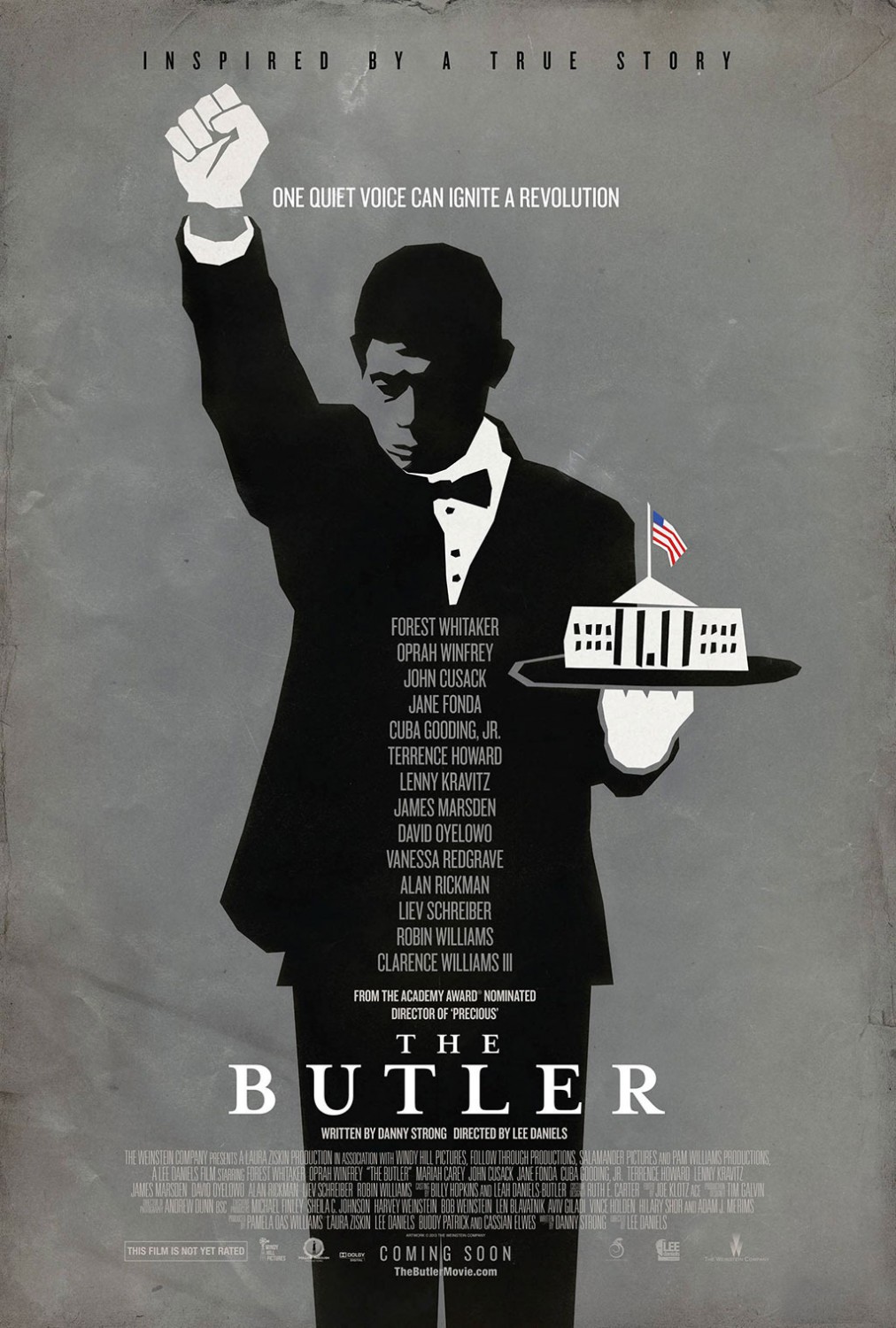 Dear Mr. Daniels,
Dear Mr. Daniels,
I had the great pleasure of meeting you during one of your visits to the African Episcopal Church of St. Thomas in the company of your mother whose ministries in music and service have enriched my life as a congregant and as a priest.
I had the tremendous pleasure of seeing your film, The Butler, earlier today. It was simply phenomenal. I want to thank you for making this moving, poignant, revelatory film. And I want to commend you for how you made it. In telling the story of Cecil Gaines and his family, you have told the story of America, our shared history, from slavery to freedom. [For those who haven’t seen the movie, specific details follow.]
While this film was wildly entertaining and full of laughter, I appreciate that you did not shy away from horrors of slavery and its legacy in America. I say “slavery,” because although the film begins in 1926, you demonstrate with incisive clarity that the world of the share-cropping south in 20th century America was no different than that of the previous slavocracy in many ways: White men and women did what ever they wanted to black folk – raping and killing without consequence. The regular rape of black women in from of their families, often including children who were products of those rapes, continued well into the Civil Rights Era. It would be another half-century before a black man who tried to protect his family could hope to be protected or supported by the law. It was particularly important for me as a black woman that you started with that horrific reality and its aftermath.
I’m a seminary professor who thinks about how we teach and tell our sacred stories. I am so grateful your visual text. Your masterful storytelling and cinematography told the story of the Civil Rights Movement through the tender story of an African American family, showing their life, love, and laughter through celebrations and struggles with heart-warming intimacy; a rare portrait of a black family on film or television. Thank you.
I particularly appreciate the way you used contrast in the film: the shots of the lunch counter-sit in cutting in and out of the state dinner were breathtaking. There were others but the contrast between Mr. Gains and his son Louis and their journeys to political action were particularly profound. I loved that each had his own journey and could not see or understand the other’s journey. While each was changing the world in his own way he struggled with the incomprehensible choices of his son/father. I was particularly struck by the refections of the King character on the subversive dignity and service of the black domestic – weaving those storylines together was sheer brilliance.
And, as a priest and pastor I deeply appreciate your honest look at intergenerational conflict, the often difficult relationship between fathers and sons and estrangement that many experience. I loved the many small moments that bore witness to the stories of black folk in America like Mr. Gaines who had never been to school sending his children to college and reading to the President’s daughter. And I noticed with delight that there was a character with your mother’s name.
There is so much more I could say: The cast was incredible. Forest Whitaker, Oprah Winfrey and Cuba Gooding Jr. were all stellar. The transformations of Robin Williams and Live Schreiber into Dwight Eisenhower and LBJ were inspired. The script was compelling. And Carol’s afro was everything! I want to thank you deeply for making this powerful film, telling the story of my people and my country. May God continue to bless you with vision and the means to bring those visions to life.
The Rev. Wil Gafney, Ph.D.

Darnise Martin
August 16, 2013 7:07 pmI agree Dr. Gafney, whole heartedly! I love the small nuances that allowed me to think about how my grandmother and great-grandmother had to deal with their circumstances for the survival of their families.
Antonia
August 19, 2013 12:49 pmYes…Carol’s afro was everything 🙂
Terri Cole Pilarski
August 29, 2013 7:47 amI recently read “Across That Bridge” by John Lewis and loved that Daniel’s portrayed the training and preparation of people for the marches and sit-ins in much the way Lewis describes. Prepared to protest in peace and love but with STRENGTH and DIGNITY. I too was taken by the parallel father/son story. This was my childhood as well, formed by MLK,Jr, Kennedy’s, Lewis, riots and protests, and the urgent desire for all people to truly be equal. It’s a desire we still work for every day. And in a time when it seems we are slipping to easily backward, this film stands as a stark reminder of the reality of and consequnces of our behavior, be it overt, covert, passive acceptance, ignorance, or denial. We still live in a world wher humans think that one version of humanity is somehow “Better” than another. Thanks, Wil, for this reflection.